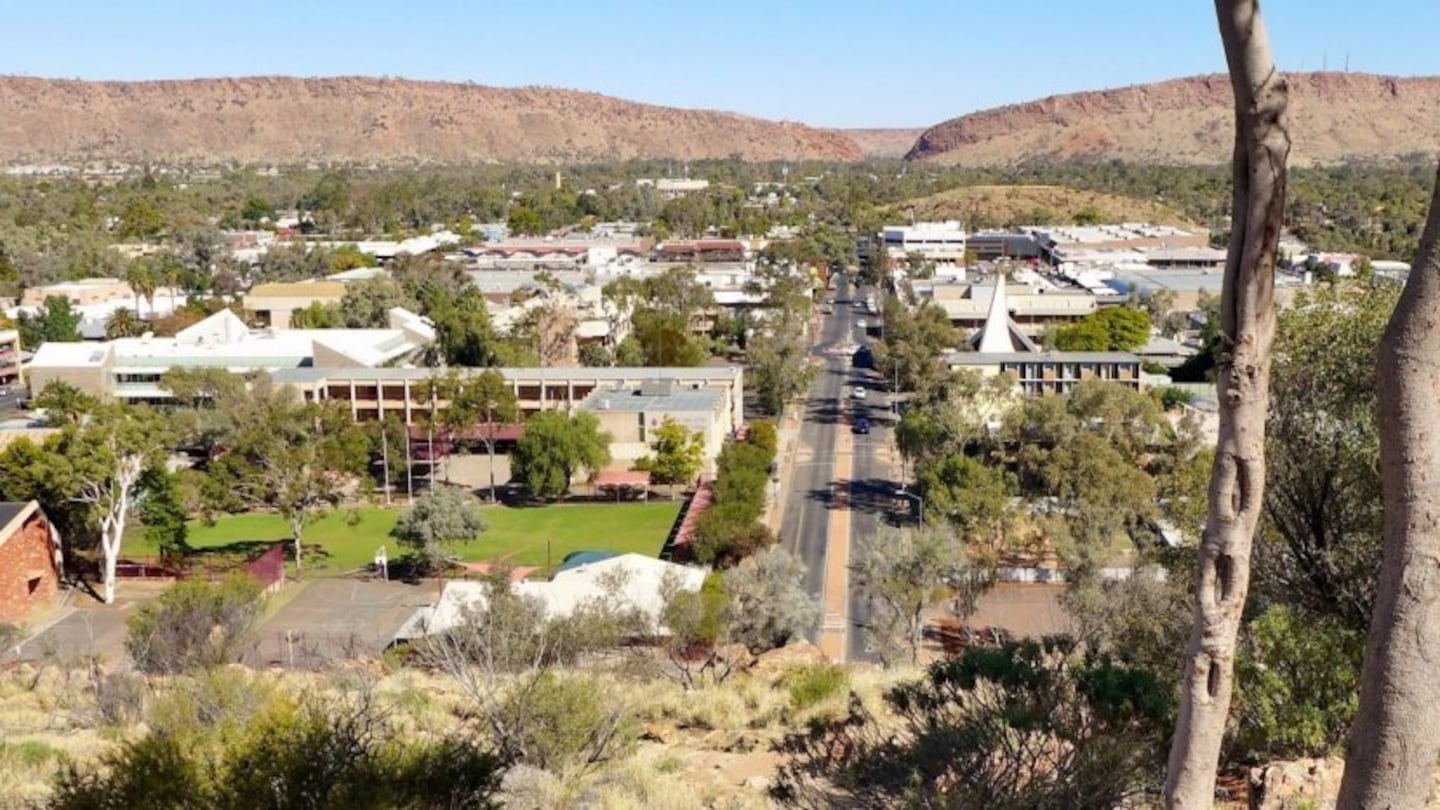Three thousand people turned up on the pretext of discussing legal action against authorities over surging crime in Australia's northern territory, attendees say the event reignited age-old rhetoric. Photo / Bahnfrend / Wikimedia
Aboriginal leaders in Australia’s Northern Territory say they’re fearful tensions related to surging crime could boil over in the form of vigilante attacks, and that they’re being ignored in resourcing to fix the problem.
More than 3,000 people gathered at a meeting on Monday which was supposed to discuss suing authorities for an increasing crimewave in the town of Alice Springs but indigenous leaders and residents in attendance say it wasn’t long before discussions got heated and exposed intense divisions in the town.
“It felt hostile to me … it sort of became a real kind of rallying cry for quite divisive rhetoric and for creating a kind of explicit ‘us and them’ divide,” Central Arrernte man Declan Furber Gillick said.
Property offences in Alice Springs have risen by 60 percent over the past 12 months, and some have pinned the surge on the lifting of restrictions on the sale of alcohol.
Posters for the event claimed it was to discuss next steps in the legal process and speculated damage rewards could be anywhere from $100,000 each to a $1.5 billion total.
According to attendees, when they arrived, a man who attempted to discuss the legal action was "booed off the stage", then people turned to attributing blame.
"It was a big room, and it felt scary. I wasn't expecting that at all," Gillick told The Guardian.
'I am scared'
Two people in attendance said they were concerned about the lack of police presence. Gillick said the atmosphere in the room ignited fears of a repeat of past racist attacks and vigilante justice.
“We’ve seen young, angry white men fuelled up on alcohol drive around and hurt people before … and I am scared, I wasn’t scared before all this.”
Alongside regional political leaders. Australian Prime Minister Anthony Albanese announced new alcohol restrictions last week,
Funding for liquor licence compliance checks and emergency housing was also part of the package but indigenous leaders have denounced politicians legislating without consultation.
"Interventionist approaches had been happening for such a long time now but still haven’t yielded any positive results," Jerome Cubillo, a spokesperson for Aboriginal Peak Organisations NT and chief executive of the NT Indigenous Business Network told the Guardian.
“Those investments into policies and programmes have got to go directly to Aboriginal organisations… We’re connected to our communities. We have our fingers on the pulse. We know what the issues are. It’s time to let us lead the solutions., Cubicle said.
Gillick said the way forward was not military intervention or ‘vigilante groups’.
“If we come together and have hard talks and we have each other’s back, we can get through these problems,” he said.




